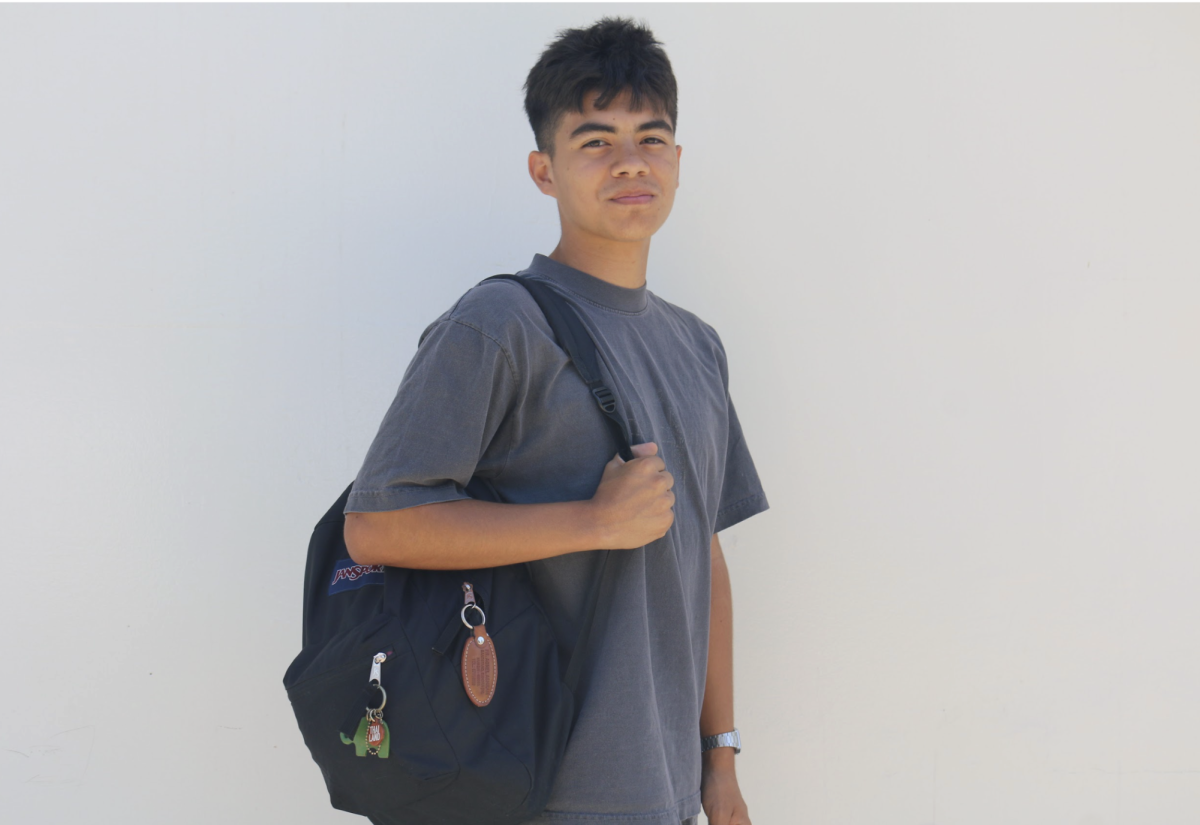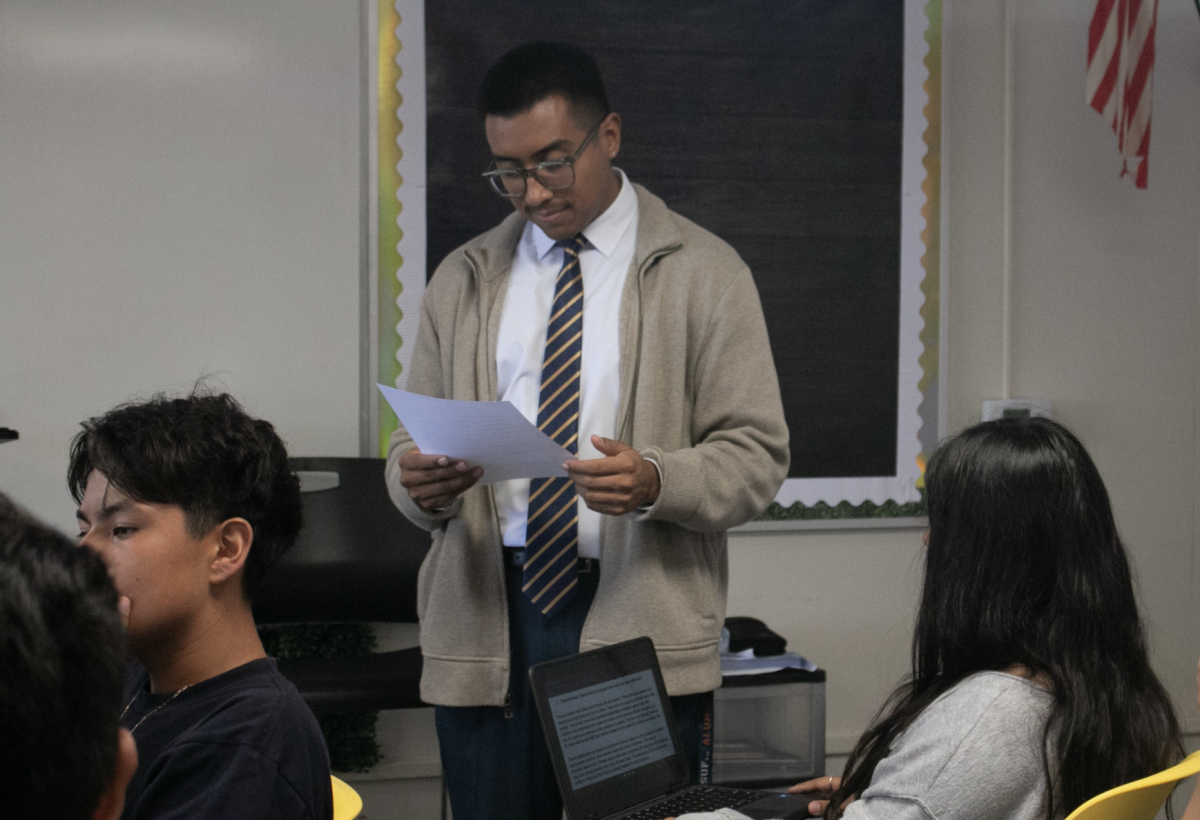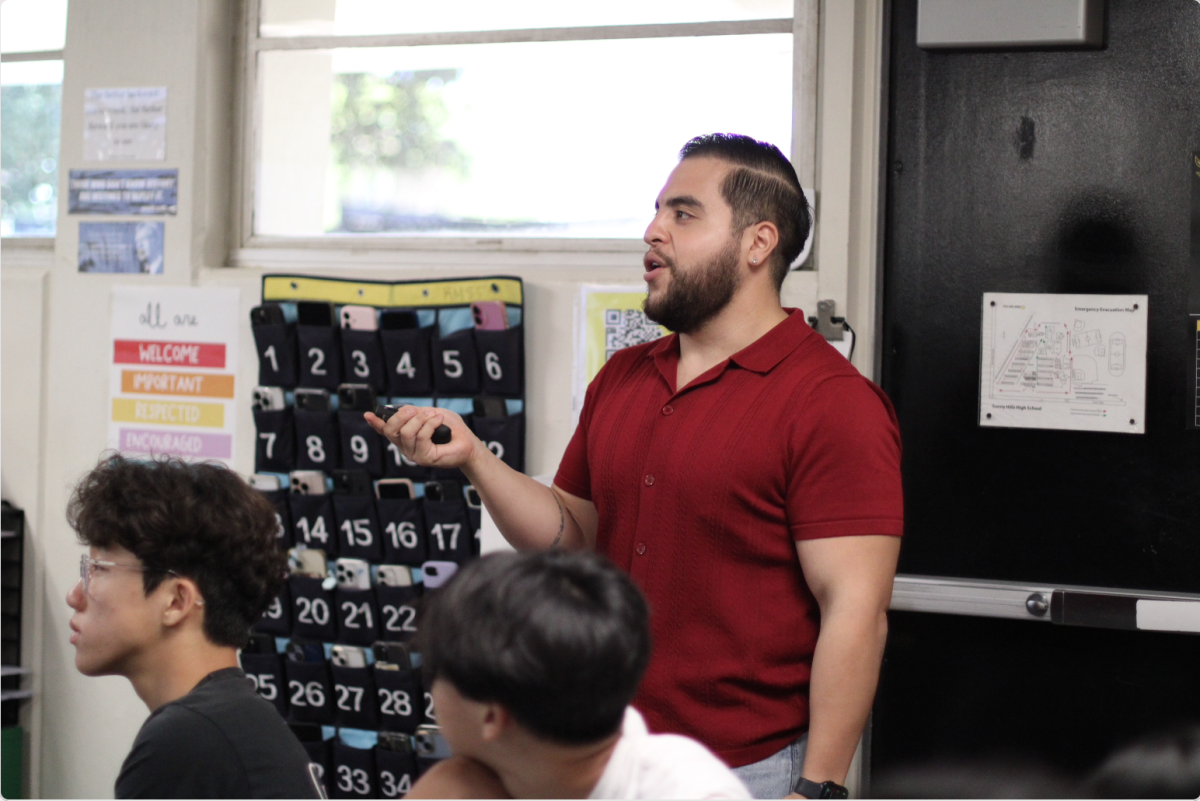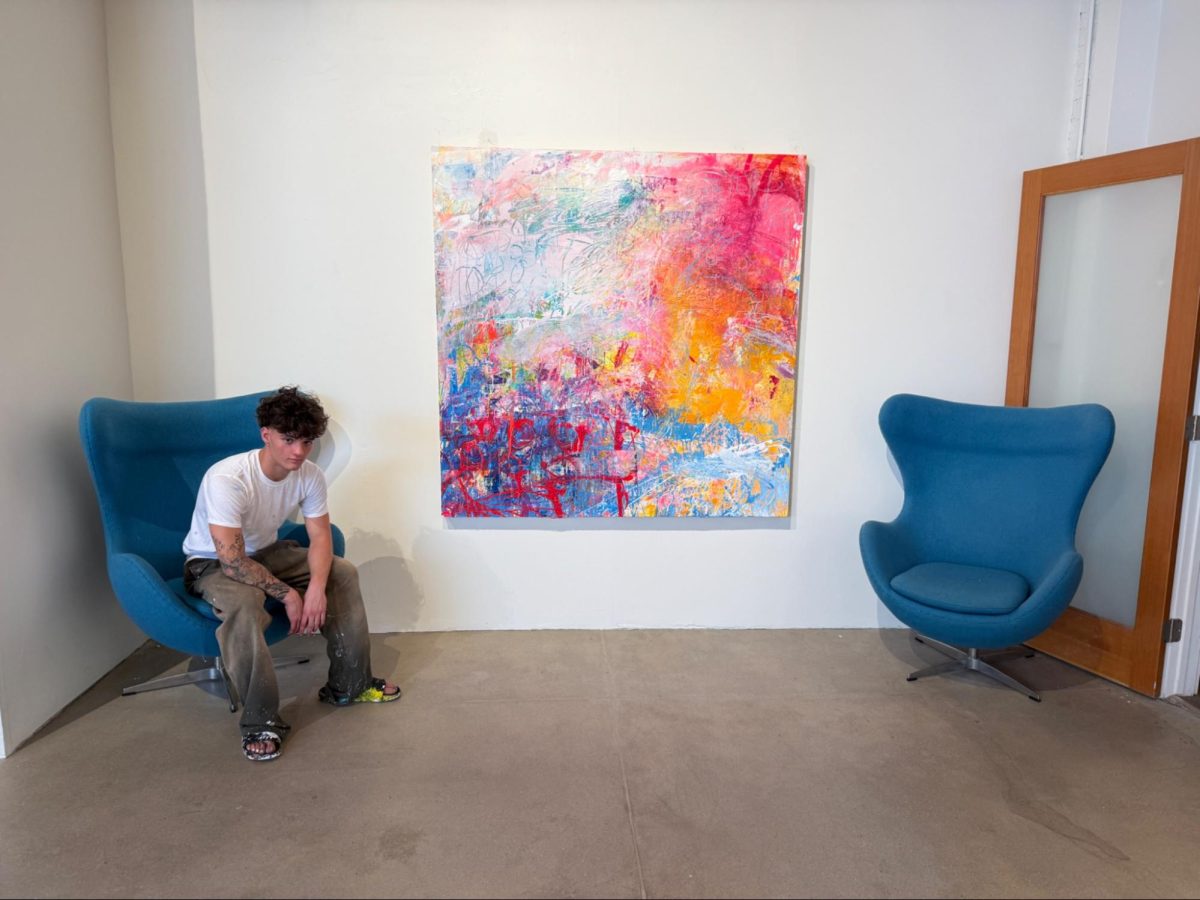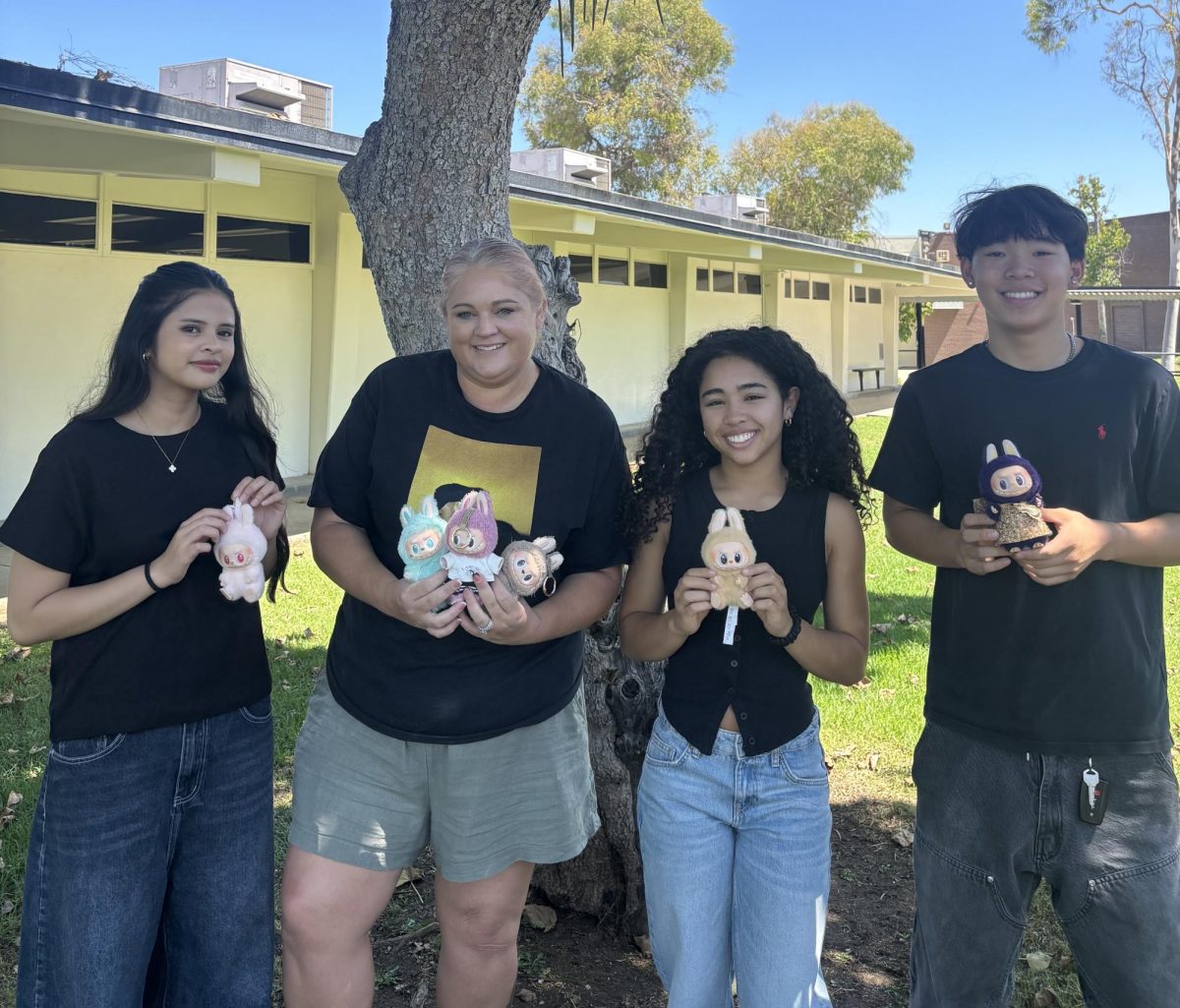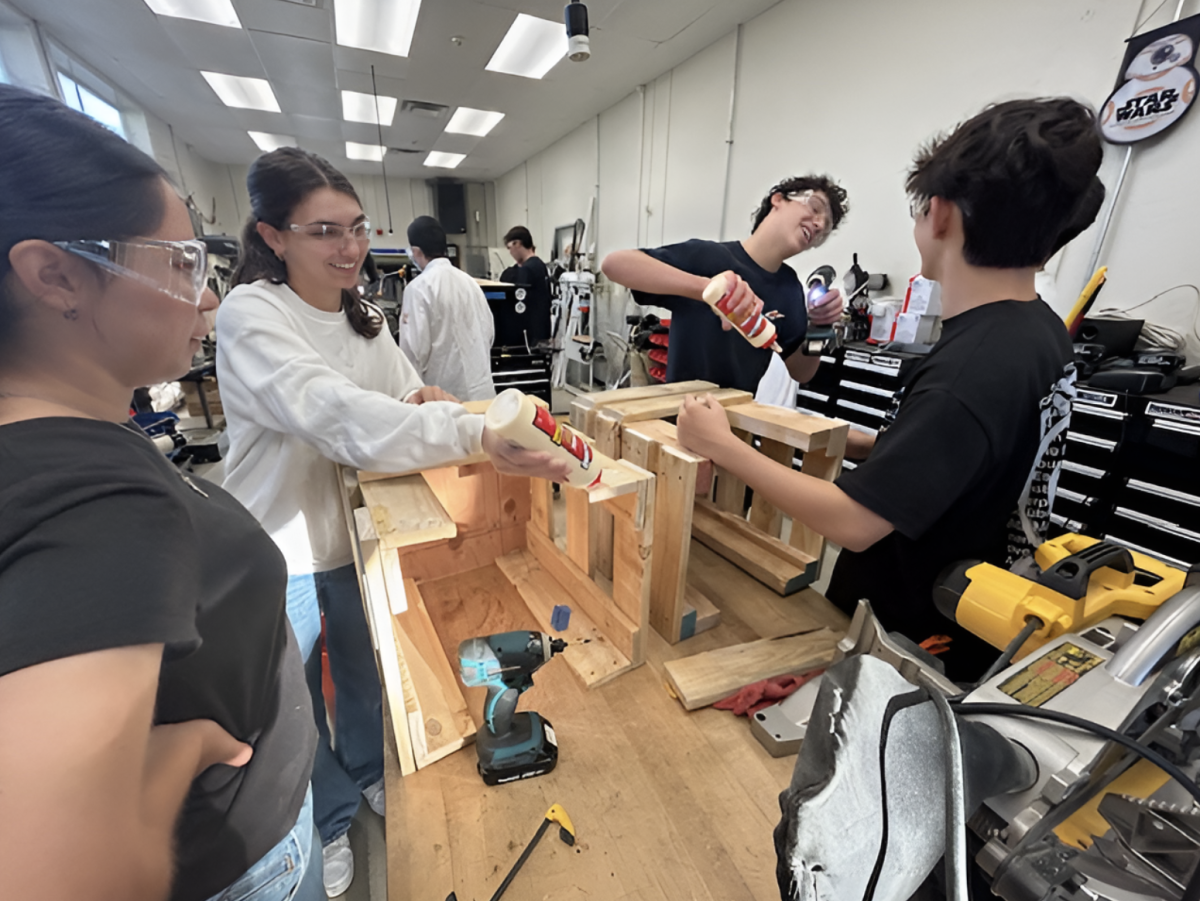It’ll be another decade before The Accolade reaches its diamond jubilee.
What will the journalism program look like? Will current adviser Tommy Li stick around for that anniversary issue (he’ll be nearly 70 years old by then)? Will writing and reporting practices change when The Accolade turns 75?
The news looks bleak for any version of the publication that would involve a printed product, some Accolade staffers said.
“Print might go away, but I think The Accolade itself won’t go away in 10 years because we still need to stay informed,” said senior Kayden Kim, who’s also the co-Opinion editor.
Kim said he doesn’t view the likely extinction of newspapers or news magazines as a disadvantage for scholastic journalists and media consumers.
“As long as people are getting correct information, it should be fine,” the senior said. “Online news just happens to be biased most of the time. I think that’s the only drawback.”
On the other hand, editor-in-chief senior Alexxa Berumen said she feels disappointed that print journalism is becoming less popular and hopes a revival will come soon.
“I’m extremely sad about the fall of print journalism because print products have always been something that I value,” Berumen said. “I enjoy being able to physically see the work that people put into making their layouts and stories.”
Although Kim and Berumen have contrasting views on what’s at stake for the journalism industry 10 years from now, they agree that The Accolade program itself will live to see its 75th anniversary.
“We are such a dedicated group of people as were our predecessors so I have no doubt that those who eventually take over will have the same ambition to keep it going,” Berumen said.
The program’s top editor also senses that The Accolade will keep going because of its prerequisite course, Journalism 1.
“With the prerequisite class, we can train reporters and condition them to meet our expectations before they come and work on staff,” Berumen said. “I am nervous that as people see this subject as being of less importance, we will likely lose this advantage.”
Staff reporter and social media team member sophomore Alice Chae said she valued her year as a freshman in Li’s third period Journalism 1 class.
“Even though it takes a whole year, I feel like it definitely covers at least the basics of journalism, and it definitely helped me get used to writing articles,” Chae said. “Keeping the prerequisite class would help us reach our 75th anniversary because I feel like once people take the Journalism 1 class, they decide whether they want to keep being in Accolade. Having that Journalism 1 class helps people feel confident and be able to commit to the Advanced Journalism class in fourth period.”
AI DOES NOT STAND FOR “ACCOLADE INTELLIGENCE”
Enrollment numbers in either journalism classes may not make a difference by 2035 because of artificial intelligence [AI], Li said.
An Oct. 7, 2024 online article from The New York Times states the various ways AI aids their journalism including data-sifting tools and automated-voice technology.
The Los Angeles Times utilizes a software application named “Quakebot” to generate articles circling the latest earthquakes as timely as possible.
With journalism developing alongside AI, Li feels that the purpose of the journalism classes will pivot.
“I think 10 years from now, if we do even have a journalism class that exists, it will be all about how to teach students to post TikTok videos and how to teach students to post newsworthy 30 word or a 15-20 word news item on social media,” the adviser said, “And you try to get traction on it, or try to get hits on it.”
Likewise, web-managing editor senior Justin Pak agrees with Li’s prediction.
“I feel like everyone nowadays gets their news from TikTok or social media, and people don’t have the attention spans to read an entire article anymore,” Pak said.
However, Kim said he agrees with Li’s claim to an extent.
“I think our journalism class will become video-based, because people are getting too lazy to read,” Kim said. “but I don’t think it’s necessarily going to become like TikTok, where it’s a few seconds long, because there’s no way you can capture much in those few seconds.”





